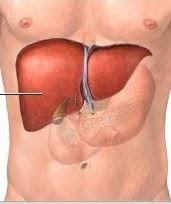ALT is an abbreviation of Alanine Transaminase, It is also called SGPT, (serum glutamic pyruvic transaminase). ALT is basically an enzyme which is found in liver and involved in various metabolic reactions. Its normal blood value is up to 45 international unit. High ALT level in the blood indicates that there is something wrong going on in the liver. Something is damaging the liver cells which result in the release of ALT in the bloodstream. This Liver Injury can be acute or chronic.
The damage may result from various causes. Some of the common causes are listed below.
If your ALT levels are high then you may want to know the cause. And the cause can be one of the above.
Read Also: Difference between drug induced and pathological Liver injury.High level of ALT represents structural damage in the liver. Liver parenchymal cells which form the architecture of the liver contain ALT and their damage result in the release of enzymes, including the ALT.
The damage may result from various causes. Some of the common causes are listed below.
1. Viral infections: Hepatitis A, B, C and E viruses all attack the liver parenchymal cells and damage them. This result in release of high level of ALT in blood and Liver function tests show high level of ALT. The ALT level may reach up to values of 200 to 400 IU. Hepatitis and A and E may cause Fulminant hepatic failure in which the ALT level may reach up to 1000 or more.
2. Infective hepatitis: Bacterial or parasitic infection may also raise the level of ALT or SGPT. Amoebic abscess which is caused by Entamoeba histolytica, Hydatid Cyst or other hepatic abscesses also increase the level of ALT.
3. Drugs: Many drugs can raise the level of ALT. Anti-tuberculous drugs, anti cancer drugs, various antibiotics and even paracetamol may damage the liver cells in high doses and in susceptible individuals. The causative drug should be identified and stopped.
Read also: A list of drugs that may damage the liver
Mechanism of drug induced liver injury
4. Autoimmune liver disease: Autoimmune hepatitis is another cause of hepatic inflammation. In Autoimmune hepatitis ALT is found to be increased.
5. Alcohol: Alcohol is de-toxified in liver. High consumption of alcohol, beyond the metabolic capacity of liver starts to damage the liver parenchymal cells and damage to the liver parenchymal cells result in raised level of ALT in blood and in liver function tests.
6. Fatty liver: Those people who are obese or over-weight may also have moderately high level of ALT. Their ALT is usually found close to 100 IU and their ALT usually remains high.
7. Cancer or hepatic metastasis: Cancer or hepatic metastatic disease directly damage the liver cells and this result in high level of ALT in blood and liver function tests.
If your ALT levels are high then you may want to know the cause. And the cause can be one of the above.
